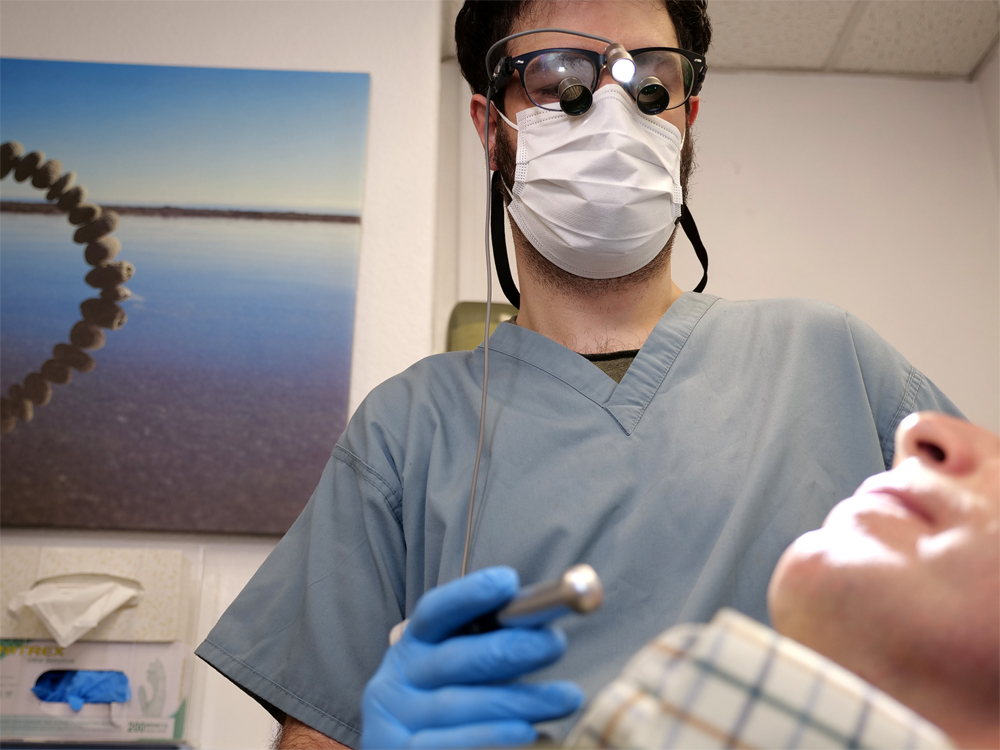Root Treatments

Why do I need root canal treatment?
This is needed when the pulp (nerve) of your tooth dies and becomes infected. It is a treatment that the dentist provides when presented with various dental emergencies. There may be swelling and severe toothache from an infected tooth and root canal therapy is the only way to save the tooth (otherwise an extraction would be required). The tooth nerve may become infected for various reasons: it could be a cavity from dental decay; there may be a cracked tooth; or it can follow a trauma from an accident; or sometimes the nerve just dies following a large filling. The death of the nerve, or necrosis, causes pus to seep out of the end of the tooth root which forms an abscess which is accompanied very often with severe pain and some associated swelling.
What happens during root canal treatment?
The aim of the procedure is to remove all of the infected tissue from the root/s of your tooth, disinfect, and then to fill the root space with a special type of filling material called gutta percha. Using local anaesthetic to make the tooth numb, very fine instruments are used together with copious amounts of a disinfectant called sodium hypochlorite, to irrigate the inside of the root/s. The treatment is often carried out over two visits and each visit may be an hour long. During treatment we normally place a rubber sheet about the size of your hand over the tooth to act as a barrier to the liquids and fine instruments that we use. The dental dam is used for your safety during the endodontic (root) treatment. Once the root filling is completed the cavity is often filled with a temporary filling before returning for a long-term restoration when the pain and swelling has resolved.
What is the chance of treatment being successful?
Root canal treatment normally has high success rates, probably over 90%. Success does however depend on the size and shape of the roots, difficulty of access to the tooth for treatment and the amount of infection present and how long it has been there. Despite our best efforts results cannot be guaranteed and sometimes the tooth does not respond and may need extracting.
What teeth can be treated?
It is possible to treat most teeth from the front incisor teeth, canines, premolars, and molars at the back. However, success depends on the dentist being able to manipulate very fine instruments to the very ends of all of the roots. Sometimes root canals can have severe bends or are very narrow which may prevent the dentist from negotiating to the end of the root. Or, on back teeth it may not be possible to get access to the root canals if the patient has a limited amount of jaw opening.
Sometimes there may be infection on a tooth which has been root treated before, requiring endodontic retreatment, or it may be a very difficult tooth to treat and then you may be referred to see an Endodontic Specialist.
Treatment risks
Any treatment carries some risks and we are obliged to mention these to you:
- Dental instrument breakage in the root canal
- Damage to the tooth or root during treatment that is not fixable
- Blocked root canals that cannot be further treated
- Post-operative discomfort (usually treated with over the counter pain killers)
- Fracture or chipping of the existing tooth/crown which requires further dentistry
- Reaction to anaesthetics or chemicals
- Incomplete healing or post-operative infection
What are the alternatives?
- No treatment at all, but the infection will become worse!
- Extraction of the tooth
Important considerations
- Is the top of the tooth restorable after the root treatment? How long will it last?
- What will be the effect if you had the tooth removed?
- When should the tooth be strengthened after the root treatment?
What happens after treatment?
After the root treatment is completed, we will seal the access hole that was made to gain access to the roots. A tooth that has had a root treatment is more brittle and following successful root treatment we may well suggest strengthening the tooth with a crown or similar treatment. We would normally wait a short period of time before doing this treatment to ensure that healing is taking place.

